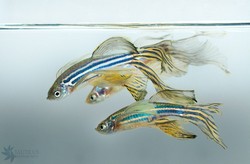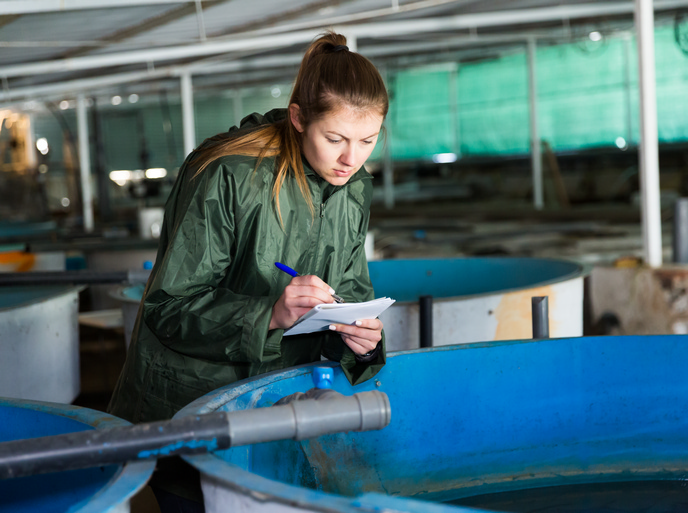IIMCB earns its stripes from zebrafish research
The FISHMED(opens in new window) (Fishing for medicines and their targets using zebrafish models of human diseases) project was twinned with six other labs. An exchange programme incorporating learning of protocols, lectures, joint application for grants and sharing of zebrafish models were key features of this collaboration. Opened in November 2012, the IIMCB Zebrafish Core Facility (ZCF) is a breeding and research facility housing wild-type and genetically modified zebrafish (Danio rerio). The restricted access system can accommodate 27 000 adult fish with room to expand, and currently holds 940 lines of fish in 9 470 tanks. Since 2013, ZCF has been registered with the Zebrafish Model Organism Database (ZFIN), the main international zebrafish database. ZCF is registered with the European Society for Fish Models in Biology and Medicine (EuFishBioMed), a European network that is devoted to fostering the exchange of information, techniques, materials and expertise within and beyond the fish community. The facility has also acquired and upgraded its research equipment, a prime example being the new state-of-the-art Zeiss fluorescence microscope. The Lightsheet.Z1 is particularly well suited for the long-term live imaging of zebrafish larvae. Open days, lectures and the 'Be healthy as a fish' educational campaign have publicised the Centre's activities. In addition, the FISHMED website and various research conferences, including the International FishMed Conference on Zebrafish Research held in Warsaw, targeted research communities and commercial enterprises. Expected results include elucidation of the importance of 5-hydroxymethylcytosine in transcription control, which will help to reduce the number of animals sacrificed in research. Other key projects involved the study of single-nucleotide polymorphisms, protein folding coordinated by Mia40, role of mTor in the retina, mitochondrial dysfunction contributing to Parkinson's disease progression, cancer and neurodegenerative disease. The potential for development of new therapies from FISHMED deliverables spans a wide range of diseases and disorders. Thanks to the support resulting from high-level international cooperation and Bio&Technology Innovations Platform professionals, the direction of research at IIMCB can be geared towards innovative solutions with clinical applications to the fore.







